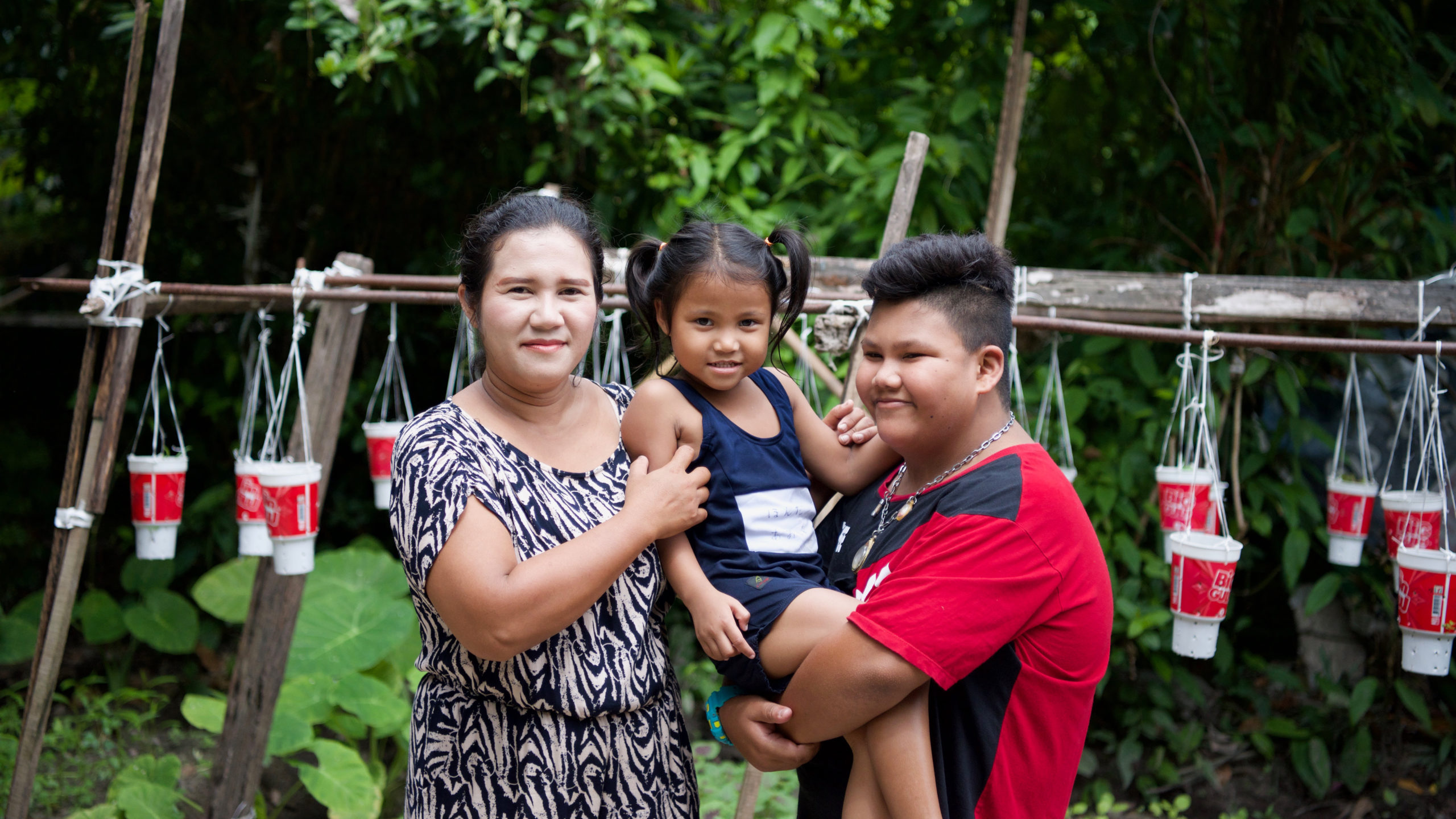Learn about kitchen gardens, and why they’re a powerful hunger-preventing tool used in Holt’s programs around the world.
When a family doesn’t have enough food for daily meals, they can feel like there are few options.
Holt provides children with free, daily meals in schools, preschools and daycares — and even emergency food packs to families in crisis. But what about for everyday meals at home, and the long-term? The best solution is one that’s accessible to families in need, and sustainable over time.
Farming and gardening are incredible ways for families to have better access to food. However, most farming families sell everything that is produced on their farms to generate income so they can buy other essentials. Often, they subsist on mostly rice or other inexpensive staples that they purchase. Instead of eating the food that they grow on their farms, they sell it for much-needed income.
But then they miss out on so many key nutrients growing right in their backyard!
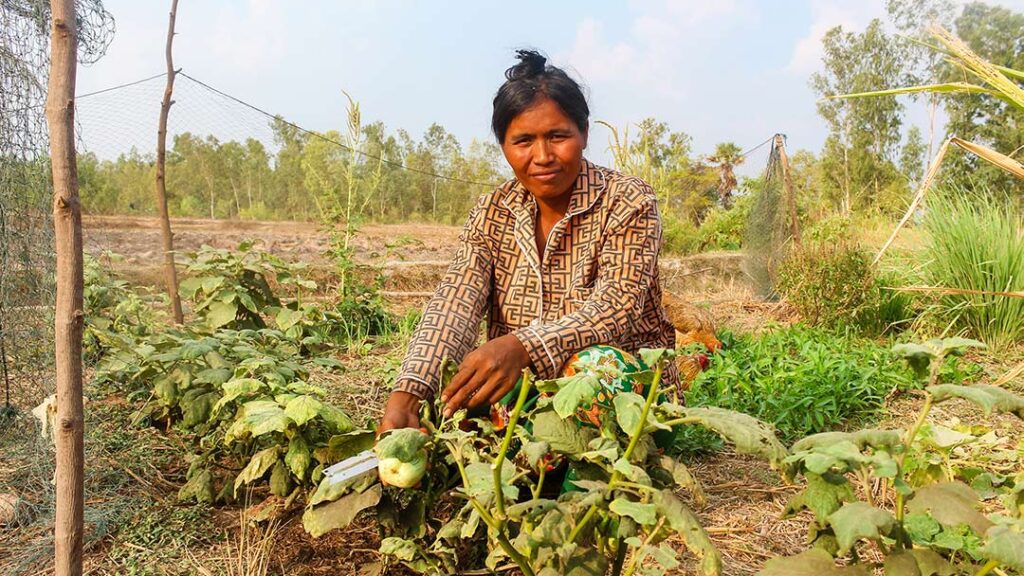
To ensure growing children receive the vital nutrients they need — and increase overall household food security — Holt donors provide the support families need to start personal kitchen gardens.
Kitchen gardens are small gardens grown close to a house that grow small amounts of fruits and vegetables directly for the household’s use. And while they can be unassuming, they can make a powerful impact on the overall health and wellbeing of children and families in need.
What does a kitchen garden look like?
Kitchen gardens can vary in size and shape, and are used to supplement a family’s diet with fresh nutritious food! Kitchen gardens can include tomatoes, lettuce, carrots, peppers, squash, beans, herbs and more.
They can be grown in many places, such as:
- Windowsills or indoors by a window
- In garden pots or boxes on porches
- On rooftops
- On small plots of land or yards
- On a trellis or vertical planter
- In alleys or between trees
- In raised garden beds
- In areas around a water source
- On hillsides
Why is a kitchen garden a great option for a family living in poverty?
These small gardens can greatly support a household’s nutrition intake of nutritious fruits and vegetables. They are easy to start, and sustainable to continue! Many kitchen gardens use grey water — household water such as the leftover water from washing dishes, laundry or rainwater — and don’t require a lot of added work or cost from the household to maintain. They often use compost from household wastes, such as dinner leftovers, and are easier to protect from animals, environmental issues and pests.
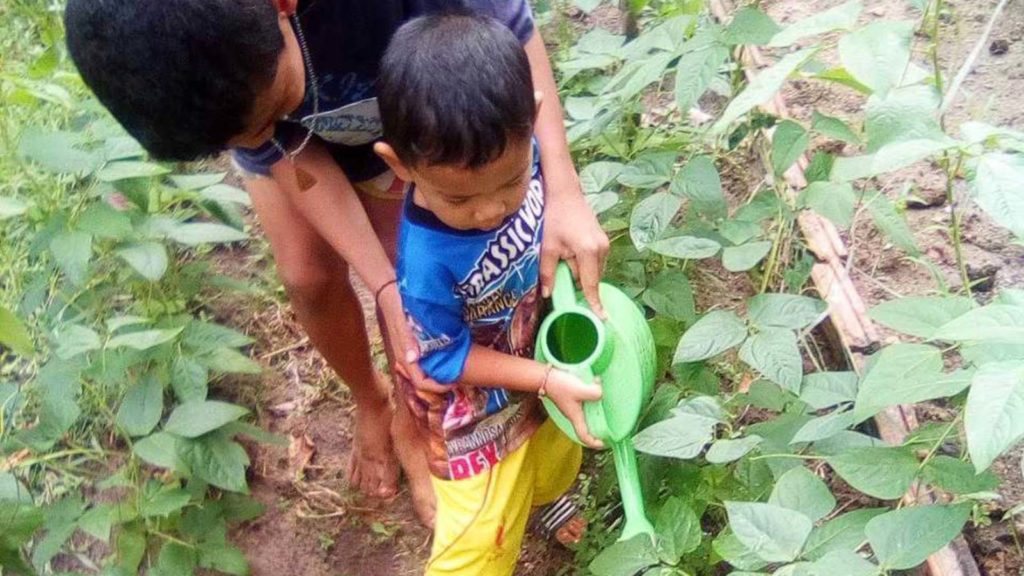
What difference can a kitchen garden make?
Kitchen gardens can improve children’s nutrition and growth! When families have kitchen gardens, we see an increased intake of nutritious foods for children. These kitchen gardens can also help families be resilient to market pressures. For example, growing their own tomatoes eliminates a family’s need to purchase expensive tomatoes from the market.
Kitchen gardens sound so great! Why don’t all families have them?
Some of the hurdles for families to start kitchen gardens include knowledge and the costs of seeds. Many families also have to build protection around their garden to protect it from animals, like goats. Additionally, some families live in water-scarce areas and may have limited access to water or limited ability to capture or store rainwater.
That’s why Holt often provides seeds, tree seedlings, gardening supplies and more to help families start kitchen gardens — as well as the training they need to garden successfully. With the right tools, training and support, we’ve seen again and again how families can overcome food scarcity and improve their overall nutrition because of their kitchen gardens.
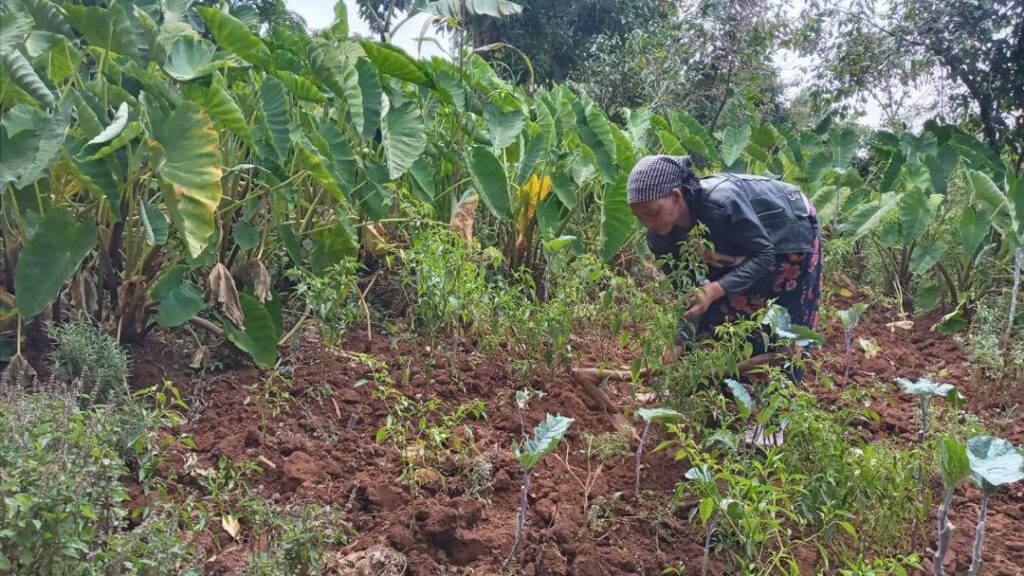
In Ethiopia, families and children are eating more nutritiously and are grateful for the seeds and support. In Cambodia, families who are raising livestock as part of our donor-supported income-generating programs are also growing small kitchen gardens, with children doing better than ever before by eating protein-packed eggs and nutritious vegetables. Kitchen gardens are changing families’ lives, all around the world!
With regular access to fresh vegetables and fruits, children are growing healthy and strong and families are becoming more food secure!
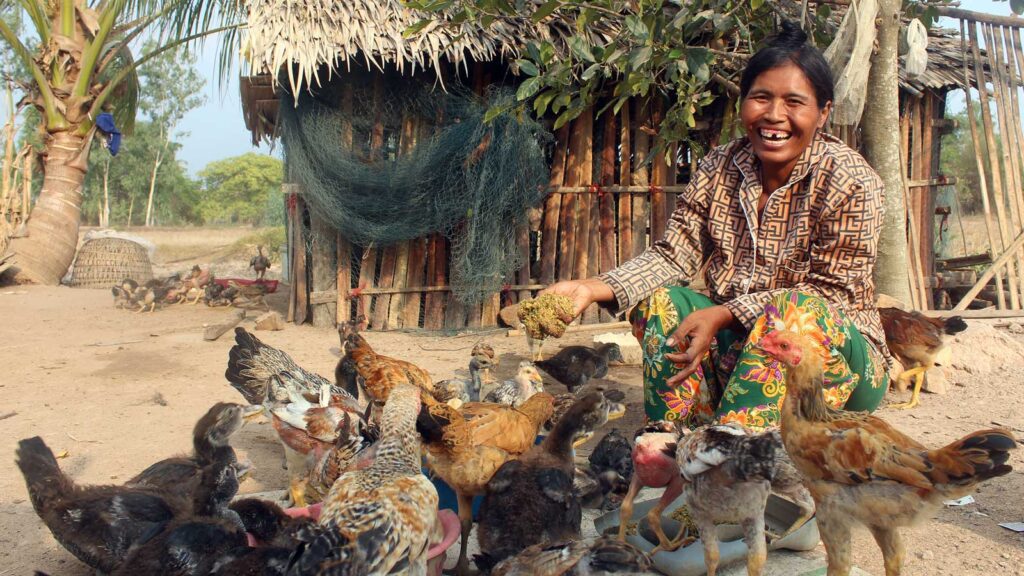
Lift a Mom Out of Poverty
When you give a gift of chickens, a garden or a sewing machine, you will bless a mom and her children.
